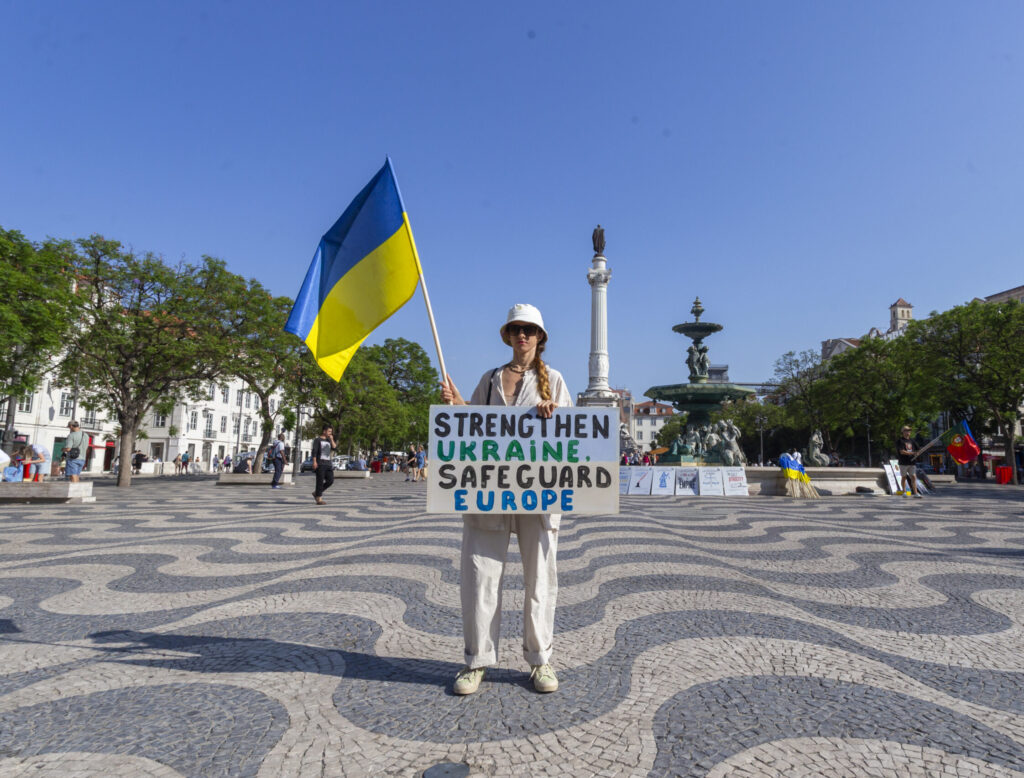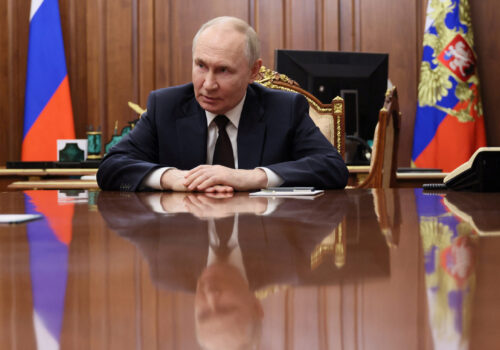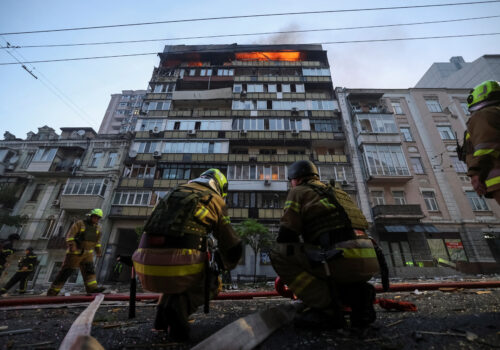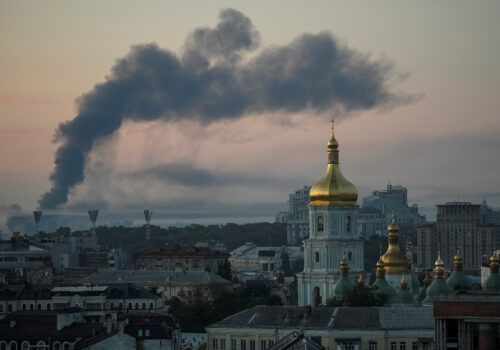For more than three years, Ukrainians have been fighting for national survival against Russia’s genocidal invasion. Their success depends on the courage of the Ukrainian Armed Forces and the resilience of the Ukrainian nation. It also requires bold political leadership, firm backing from allies, and unity among the country’s supporters.
International backing for Ukraine is more fragile than many people may appreciate, and is particularly vulnerable to shifts in the domestic politics of partner countries. This support is also at risk of being eroded by the tendency to publicly criticize Ukraine whenever a controversial or unpopular decision is made in Kyiv.
Scrutiny is an important aspect of international support for Ukraine. After all, a healthy democracy depends on accountability. But there is a big difference between constructive engagement and unqualified condemnation. Every time Ukrainian diaspora groups or international allies choose to attack the Ukrainian authorities on the world stage, this provides ammunition for those pushing to cut aid or abandon Ukraine altogether.
It is no secret that Ukraine’s detractors are always watching for any excuse to argue that Ukraine is hopelessly corrupt, terminally divided, or otherwise undeserving of further support. Their arguments are all the more persuasive when they are able to quote pro-Ukrainian voices. Why give them such gifts?
Stay updated
As the world watches the Russian invasion of Ukraine unfold, UkraineAlert delivers the best Atlantic Council expert insight and analysis on Ukraine twice a week directly to your inbox.
The recent debate over controversial legislation limiting the independence of Ukraine’s anti-corruption agencies illustrates the challenges of addressing Ukrainian domestic politics in a responsible manner during wartime. While concerns over the need for transparency and democratic integrity are entirely legitimate, not everyone has rushed to judgment. This more cautious approach should not be confused with passive acceptance. On the contrary, sometimes being a true partner means seeking clarity and offering solutions rather than shouting from the sidelines.
Too often, diaspora voices and international observers fall into the trap of reacting to sensational headlines without digging deeper. This kind of armchair criticism rarely helps Ukraine. Instead, the country needs allies who understand that mistakes will happen in wartime, while also acknowledging that even troubling developments do not justify withdrawing support entirely. I’ve lost count of the number of times I’ve heard members of the Ukrainian diaspora use corruption as an excuse to justify their lack of support for Ukraine.
Eurasia Center events

It also helps to maintain a sense of proportion. With the largest European invasion since World War II now in its fourth year, the real scandal that should be occupying the attention of Ukraine’s supporters is the sluggish pace of international aid. According to the Kiel Institute, European countries need only allocate 0.21 percent of GDP to the Ukrainian war effort in order to replace military support from the United States. While countries like Estonia, Denmark, and Lithuania are easily surpassing this target, wealthier European nations like Germany, France, Italy, Portugal, and Belgium continue to fall short.
Ukraine cannot hope to prevail against a military superpower like Russia without sufficient backing from the country’s allies. Wherever they are located, Kyiv’s supporters and members of the Ukrainian diaspora should be laser-focused on convincing their respective governments to meet or exceed the 0.21 percent threshold. This could prove decisive in determining whether Ukraine survives as an independent state.
The vast majority of Ukraine’s friends and allies are committed to a shared vision of the country’s future as a European democracy. They recognize that this means upholding basic human rights and core democratic principles, including the need to rigorously combat corruption and hold power to account. At the same time, it should be abundantly clear to anyone who cares about Ukraine that the country’s fight for survival is the current priority.
Ukraine needs unity. Even when the country’s supporters bitterly disagree, it is important to remember exactly what is at stake. We will hopefully have decades to continue the debate over building a better Ukraine. However, if Russia is not stopped, there may be no Ukraine at all.
Pavlo Grod is President of the Ukrainian World Congress.
Further reading
The views expressed in UkraineAlert are solely those of the authors and do not necessarily reflect the views of the Atlantic Council, its staff, or its supporters.

The Eurasia Center’s mission is to enhance transatlantic cooperation in promoting stability, democratic values, and prosperity in Eurasia, from Eastern Europe and Turkey in the West to the Caucasus, Russia, and Central Asia in the East.
Follow us on social media
and support our work
Image: A person hoists flags and placards in Lisbon, Portugal, on July 5, 2025, during a demonstration of the Ukrainian community in Portugal in support of Ukraine. (Photo by Luis Boza/NurPhoto)




